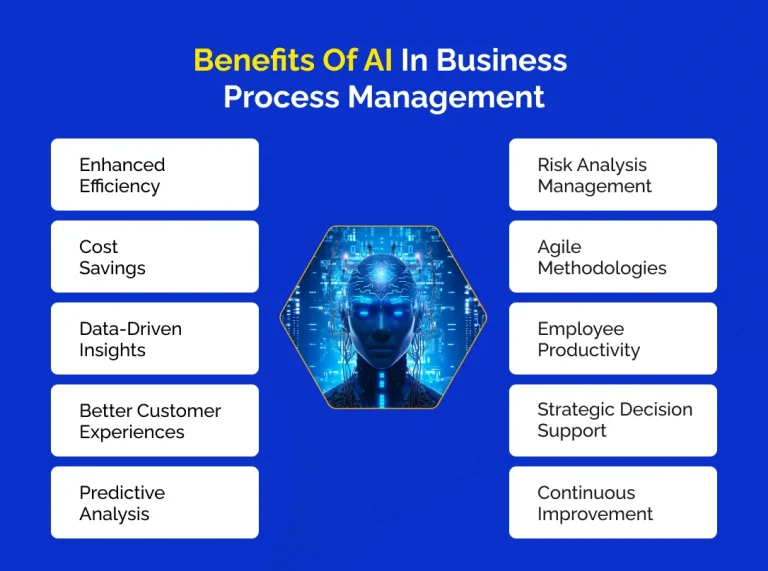How Enterprise AI Boosts Productivity Across Departments
Artificial Intelligence (AI) is no longer a futuristic ideal; it’s the engine behind some of today’s most significant business transformations. In the enterprise context, AI platforms and agents are revolutionizing how companies operate, innovate, and serve their customers. Leveraging AI within various departments enables organizations to unlock higher levels of productivity, reduce costs, and foster agility.
In this deep-dive, we’ll explore how enterprise AI unleashes productivity gains across departments, highlight practical use cases, and spotlight the technologies empowering this new wave of efficiency.
The Rise of Enterprise AI: A Productivity Game Changer
Traditional productivity methods—manual workflows, siloed operations, and repetitive tasks—are rapidly giving way to intelligent automation. The enterprise AI platform has emerged as a holistic solution, offering modular, scalable tools that adapt to various departmental needs.
What Sets Enterprise AI Apart?
- Integration across Systems: AI platforms easily sync with current ERP, CRM, and other business software, removing data silos.
- Custom AI Agents: Teams can deploy specialized AI agents trained for specific roles or business objectives.
- Real-time Insights: AI surfaces trends and analytics as they happen, empowering proactive decision-making.
AI-driven automation is not one-size-fits-all; rather, it empowers each department to tailor productivity strategies to its unique challenges. Let’s break down these improvements by function.
How AI Empowers Key Departments1. Operations: Streamlining Processes and Reducing Inefficiencies
Operations departments are at the heart of any organization, orchestrating everything from supply chain logistics to resource allocation. AI enables:
- Inventory Optimization: Predictive AI models anticipate inventory needs, reduce stockouts, and prevent overstocking.
- Process Automation: Automated workflow tools handle routine approvals and compliance checks, freeing staff for higher-value work.
- Supply Chain Visibility: Real-time data and intelligence improve supplier negotiations and logistics planning.
2. Finance: Enhancing Accuracy and Financial Intelligence
Financial professionals rely heavily on data precision and compliance. With AI:
- Automated Invoice Processing: Machine learning reads and verifies invoices, reducing manual errors.
- Fraud Detection: AI models analyze transactions, flagging unusual patterns for review.
- Forecasting: By analyzing historical data, AI enables more accurate revenue and expenditure projections.
3. Human Resources: Revolutionizing Talent Management
The HR function benefits from AI through:
- Automated Recruiting: AI agents screen resumes and rank candidates based on unique hiring requirements.
- Employee Experience: AI chatbots and agents respond to employee questions, track satisfaction, and customize training recommendations.
- Workforce Planning: Predictive analytics optimize staff scheduling and talent planning.
4. Marketing: Data-Driven Campaigns and Personalization
With the overwhelming volume of marketing data, AI acts as a digital strategist:
- Customer Segmentation: AI discovers high-value segments and emerging trends within customer bases.
- Personalization: Automated content and offers adapt to user behavior in real-time.
- Performance Analytics: AI-powered tools measure campaign effectiveness with granularity, guiding budget allocations.
5. Sales: Accelerated Pipelines and Improved Close Rates
AI empowers sales by:
- Lead Scoring and Prioritization: Machine learning models rank prospects based on conversion likelihood.
- Sales Forecasting: AI predicts pipeline performance, helping managers allocate resources.
- Conversational AI Agents: These tools handle initial outreach, nurturing prospects until human intervention is required.
6. Customer Support: 24/7 Intelligent Assistance
Customer service teams leverage AI for:
- AI Agents as Support Staff: Chatbots and virtual assistants handle FAQs, ticket triage, and escalation.
- Sentiment Analysis: AI detects customer frustration before it escalates, allowing proactive engagement.
- Automated Case Routing: Cases are automatically assigned to the most qualified representative.
The Role of AI Agents in Enterprise Productivity
A core component of enterprise AI innovation is the evolution of the AI agent. But what is an AI agent? In the enterprise context, an AI agent is an autonomous software entity programmed to perform specific tasks, make decisions, and learn from new data.
AI agents can manage repetitive processes, interact with stakeholders, or even adapt their actions based on outcomes. In departments from HR to IT, AI agents help reduce the operational burden on humans and accelerate results.
Real-World Use Cases: Maximizing Departmental Productivity with AI
Forward-thinking enterprises are already reaping significant benefits from AI enablement:
- Automated Contract Review: AI parses legal documents, highlights risks, and accelerates approvals for legal and procurement teams.
- IT Helpdesk Automation: AI agents handle routine tech support tickets, reducing response times and improving user satisfaction.
- Personalized Learning Paths: In HR, AI agents analyze skill gaps and recommend tailored upskilling content for employees.
For organizations exploring fully tailored AI solutions, tools like the latest enterprise AI agent deployments offer specialized, scalable improvements.
Implementing Enterprise AI: Best Practices
While the productivity benefits of AI are substantial, successful implementation requires strategic planning:
- Build a Cross-Departmental AI Strategy: Ensure alignment across IT, business leaders, and individual departments.
- Leverage Scalable Platforms: Use modular AI solutions that can evolve as business needs change.
- Train Employees for Digital Collaboration: Upskill your team in working with AI tools and interpreting AI-driven recommendations.
- Monitor Performance and Iterate: Use analytics to measure outcomes and continuously improve AI-driven processes.
Addressing Challenges in Enterprise AI Adoption
AI isn’t a panacea. Key considerations include:
- Data Quality: AI relies on high-quality, well-integrated data sources for accurate insights.
- Change Management: Employees need to understand how AI supports (not threatens) their roles to ensure buy-in.
- Cybersecurity: Sensitive business data handled by AI systems must be securely protected.
Forward-looking organizations address these challenges with careful governance, training, and transparent communication.
The Future of Work: A New Standard for Productivity
As enterprise AI technology becomes ever more accessible, organizations of every size and industry are poised to benefit from the productivity revolution. Modern AI platforms and AI agents are already transforming the DNA of business operations, pushing what’s possible in efficiency, collaboration, and rapid problem-solving.
Organizations that embrace this intelligent augmentation—empowering humans with flexible, responsive AI support—won’t just survive. They’ll thrive in a world where change is constant and productivity is the new gold standard.
Frequently Asked Questions (FAQ)
1. What is enterprise AI?
Enterprise AI refers to the integration of artificial intelligence technologies—like machine learning, natural language processing, and AI agents—across core business departments to enhance efficiency, automate workflows, and support data-driven decision-making.
2. How does an enterprise AI platform differ from standard AI solutions?
An enterprise AI platform is tailored for large-scale, cross-departmental integration and supports complex, organization-wide processes with scalability, robust data pipelines, and security features that generic AI tools lack.
3. What are AI agents and how are they used in business?
AI agents are autonomous software tools that perform specific tasks independently within business systems—for example, sorting emails, triaging support requests, or analyzing data trends.
4. Which departments benefit the most from enterprise AI?
While AI can add value everywhere, departments like Operations, Finance, HR, Marketing, Sales, and Customer Support often benefit the most from AI-driven productivity enhancements.
5. Is implementing enterprise AI expensive?
Initial costs can vary, but scalable subscription models and cloud-based platforms often reduce the total cost of ownership, and productivity gains typically deliver strong ROI over time.
6. What kind of data does enterprise AI need to work effectively?
Enterprise AI requires access to accurate, timely, and integrated business data—such as transaction histories, customer interactions, and operational metrics—to generate actionable insights.
7. Can AI agents replace human workers?
AI agents are best seen as collaborators—they automate repetitive tasks so human team members can focus on strategic, creative, and relationship-oriented work, rather than acting as replacements.
8. How quickly can organizations see productivity gains from AI?
Many organizations begin to see efficiency improvements within a few months, especially when targeting “quick win” use cases like automated data entry or customer support triage.
9. How do you ensure data security with enterprise AI?
Leading AI platforms offer enterprise-grade security, including encryption, access controls, and built-in compliance tools, to ensure sensitive data is well protected.
10. What is the future of enterprise AI?
The future promises even deeper integration of AI across business functions, with AI agents becoming smarter, more autonomous, and adept at complex multi-departmental collaboration.
Your Next Moves: Leveraging Enterprise AI to Stay Ahead
The journey to peak productivity is ongoing—and with enterprise AI platforms and AI agents, businesses have powerful allies at their disposal. By leveraging these technologies wisely, embracing a culture of digital transformation, and investing in upskilling for AI collaboration, organizations can set a new benchmark for productivity, agility, and sustainable growth. The time to harness AI’s full potential is now.







